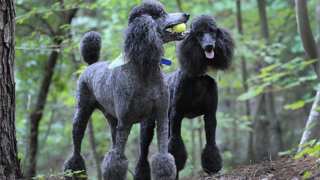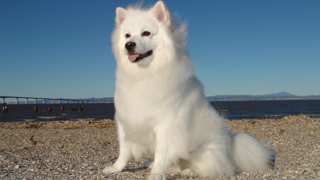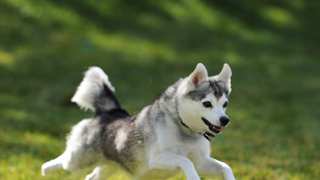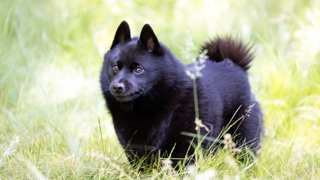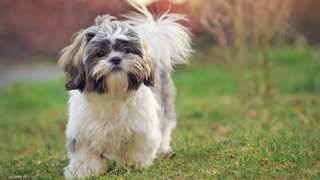As with any breed, diet and nutrition is vital to Miniature Poodles' health and happiness. Also like most breeds, Miniature Poodle food will need to contain plenty of nutrients, including animal proteins and carbohydrates for energy and omega fatty acids for healthy coats and skin. A few owners believe a raw diet consisting of fresh meat, eggs, and fruits/veggies is best for these dogs; most owners, though, find this raw diet too expensive and inconvenient, so the most popular choice is premium dry food. The dry food will need to be high-quality because it'll contain the necessary proteins, carbs, and fats that cheap dog food simply doesn't have.
But how much of this premium food should you feed your Mini Poodle? And how often? Adult Mini Poodles--and this amount may vary depending on a dog's age and activity level--will need about ¾ cup of premium dry food per day, divided into two meals. Puppies, again depending on their age, need a bit less: about ½ cup per day, divided into three meals until the pup is six months old. It's recommended that you feed a young Mini Poodle puppy food until it's about ten months old, then you can transition to adult formula by mixing the two types. It's also a good idea to establish a consistent daily feeding schedule for your Mini Poodle so the dog gets used to eating at the same time every day. For more details on feeding a Miniature Poodle, see the following chart:
Miniature Poodle Feeding ChartDog AgeDog WeightFood TypeAmountFrequency2 Months2 lbsDry (Puppy formula)0.1 cups3x/day3 Months5 lbsDry0.15 cups3x/day6 Months9 lbsDry0.2 cups3x/day9 Months12 lbsDry* (Puppy/Adult)0.3 cups2x/day12 Months+15 lbsDry (Adult formula)0.4 cups2x/day* -- Around this time, begin mixing in a bit of adult food with the puppy food. Slowly increase the adult amount in each meal over a week's time, until the adolescent is eating all adult formula.
Though the above-listed portions may seem small, they're ample enough for Mini Poodles. It's best to stick to these portions, because Mini Poodles can become obese if overfed. A fat Mini Poodle will have joint, digestive, and breathing problems (not to mention a shortened lifespan). You can help control your Poodle's weight in several ways: have a regular feeding schedule, give the dog plenty of exercise, and no "free-feeding." Free-feeding is leaving food in the dog's bowl all the time, allowing it to eat whenever it wants, which veterinarians say is a completely unhealthy practice. Put your Mini Poodle's bowl down only at mealtimes, then pick it up 15-20 minutes after the dog begins eating.
If you're worried your Mini Poodle is overweight, give the dog this simple Ribs Test: run a hand along its side, and if you can easily feel ribs, it's diet time. Decrease the dog's food intake by one-fourth, and add an extra walk or play period to its daily exercise schedule.

